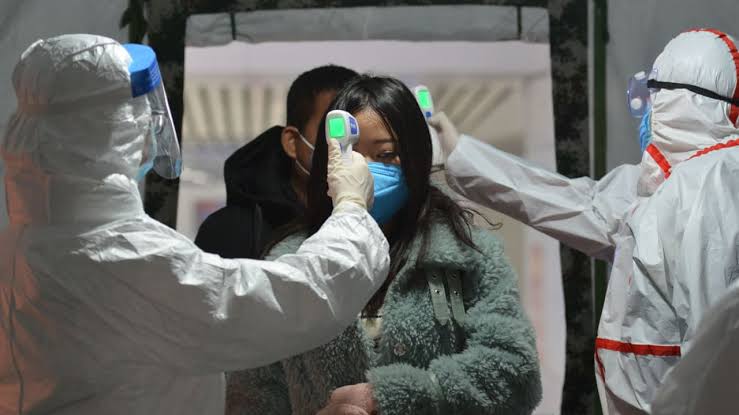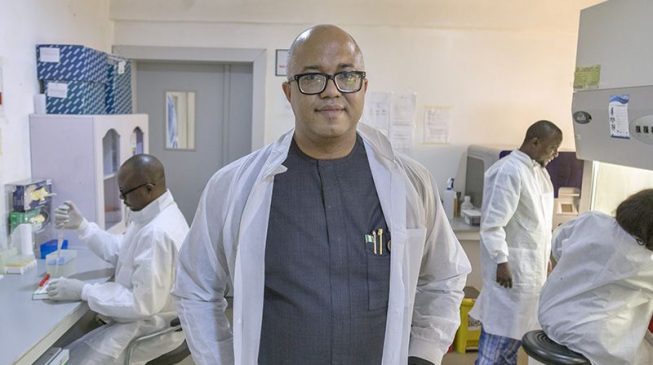The World Health Organization (WHO) has declared a global health emergency over a new coronavirus that has killed at least 213 people in China following an outbreak in the central city of Wuhan, forcing a government lockdown in almost 20 cities that, in effect, has quarantined an estimated 56 million people.
More than 9,000 cases have been reported worldwide, most of them in China and especially in Wuhan and nearby cities in Hubei Province
The infection is now more widespread than the 2002-2003 severe acute respiratory syndrome (SARS) outbreak, which also originated in China, in terms of affected people but not deaths.
Here is what you need to know:
What is coronavirus?
According to the World Health Organization (WHO), coronaviruses are a family of viruses that cause illness ranging from the common cold to more severe diseases such as SARS and Middle East respiratory syndrome (MERS).
These viruses were originally transmitted between animals and people. SARS, for instance, was believed to have been transmitted from civet cats to humans while MERS travelled from a type of camel to humans.
Several known coronaviruses are circulating in animals that have not yet infected humans.
The name coronavirus comes from the Latin word corona, meaning crown or halo. Under an electron microscope, the image of the virus is reminiscent of a solar corona.
A novel coronavirus, identified by Chinese authorities on January 7 and named 2019-nCoV, is a new strain that had not been previously identified in humans.
Little is known about it, although human-to-human transmission has been confirmed.
What are the symptoms?
According to the WHO, signs of infection include fever, cough, shortness of breath and breathing difficulties.
In more severe cases, it can lead to pneumonia, severe acute respiratory syndrome, kidney failure and even death.
The incubation period of the coronavirus remains unknown. Some sources say it could be between 10 and 14 days.
How deadly is it?
Some experts say it may not be as deadly as other types of coronavirus such as SARS, which killed nearly 800 people worldwide, more than 300 in China alone – during a 2002-03 outbreak that also originated in China.
MERS, which did not spread as widely, was more deadly, killing one-third of those it infected.
In China, however, the infection is more widespread than SARS in terms of case numbers.
Where have cases been reported?
Most cases have been reported in China.
All deaths have been in China – the vast majority in Hubei Province.
The virus has spread to many Asian countries, as well as Australia, Europe, North America and the Middle East. Nearly all of the dozens of cases outside China are among people who recently travelled there.
What is being done to stop it from spreading?
There is no vaccine yet for the new virus.
Chinese authorities have effectively sealed off Wuhan, state media said.
The move was meant to “resolutely contain the momentum of the epidemic spreading” and protect lives, the central city’s special command centre against the virus said, according to state broadcaster CCTV.
More than a dozen other Chinese cities also adopted transport restrictions, affecting 56 million people.
Several airlines, including United Airlines and British Airways, have cancelled flights to China.
Airports around the world have introduced screening measures and some countries are working to evacuate their citizens from Wuhan.
Where did the virus originate?
Chinese health authorities are still trying to determine the origin of the virus, which they say came from a seafood market in Wuhan where wildlife was also traded illegally.
The WHO also says an animal source appears most likely to be the primary source of the outbreak.
Snakes – including the Chinese krait and the cobra – may be the source of the newly discovered virus, according to Chinese scientists.
Is this a global emergency?
The outbreak constitutes a global health emergency, the WHO has said.
The decision to sound the top-level alarm was made after the first confirmed cases of transmission between people outside China.
The international health alert is a call on countries around the world to coordinate their response under the guidance of the United Nations health agency.
There have been five global health emergencies since 2005 when the declaration was formalised: swine flu in 2009; polio in 2014; Ebola in 2014; Zika in 2016 and Ebola again in 2019.
SOURCE: AL JAZEERA AND NEWS AGENCIES


 News6 years ago
News6 years ago
 Featured6 years ago
Featured6 years ago
 Boss Picks6 years ago
Boss Picks6 years ago
 Headline6 years ago
Headline6 years ago
 Headline6 years ago
Headline6 years ago
 Headline5 years ago
Headline5 years ago
 Headline6 years ago
Headline6 years ago
 Headline6 years ago
Headline6 years ago












